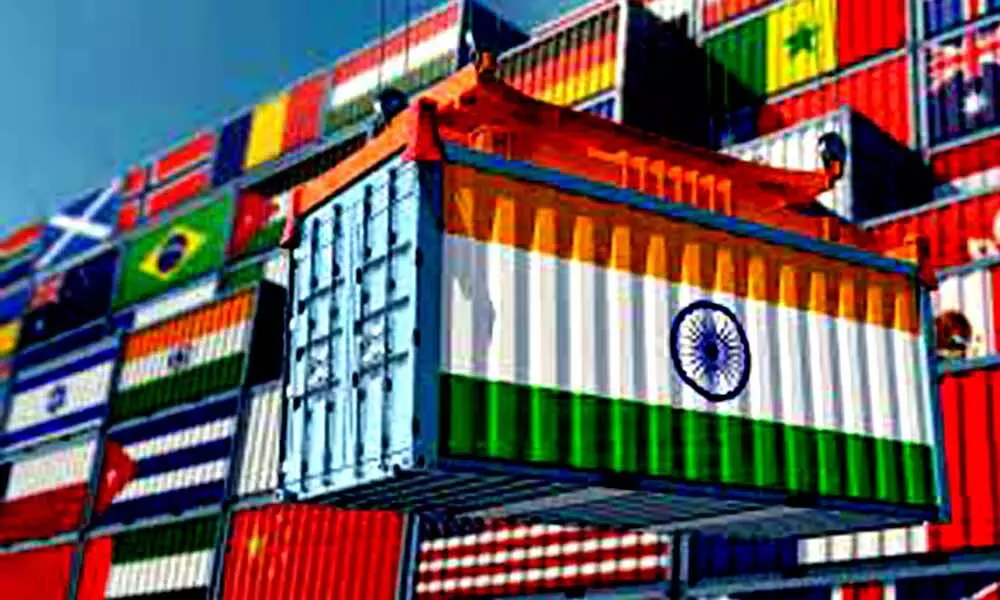Exploring trade opportunities between India & Mauritius
Mauritius can be the perfect gateway for Indian products to penetrate vast African market
image for illustrative purpose

A virtual trade exhibition between India and Mauritius from 3 March 2022 to 3 June 2022 invites the companies across different sectors to showcase products and services and looks forward to collaboration with companies from both the regions
A virtual trade exhibition between India and Mauritius from 3 March 2022 to 3 June 2022 invites the companies across different sectors to showcase products and services and looks forward to collaboration with companies from both the regions.
India is the second most important trade partner for Mauritius. The total trade flow between the two countries stood at over $400 million in 2020 which is below its true potential. India and Mauritius have inked a trade agreement, CECPA – Comprehensive Economic Cooperation & Partnership Agreement. CECPA provides preferential market access to goods 'Made in Mauritius' as well as for Indian products. Mauritius produces high quality products such as specialty sugar, seafood products, alcoholic beverages, garments, medical devices, etc. The country is also the perfect gateway for Indian products to penetrate the vast African market. As a leading International Financial Centre in the region, Mauritius offers an excellent platform and a secure environment for cross-border investment.
India and Mauritius signed CECPA on 22 February 2021. The CECPA is the first trade agreement signed by India with a country in Africa. Both sides have completed their internal legal procedures and the India-Mauritius CECPA will enter into force on Thursday, 01 April 2021. The Agreement is a limited agreement, which will cover trade in goods, rules of origin, trade in services, technical barriers to trade (TBT), sanitary and phytosanitary (SPS) measures, dispute settlement, movement of natural persons, telecom, financial services, customs procedures and cooperation in other Areas.
In the last five years, India has been among the leading trading partners of Mauritius. In 2020, India represented 10 per cent share of Mauritian total imports and ranked third in their main countries of import. The volume of exports from India to Mauritius was $1,027 million in 2018, $776 million in 2019 and $396 million in 2020. In the recent years, main items of exports of India to Mauritius have been petroleum products, pharmaceuticals and rice. It is also a major supplier of raw materials for the local industry namely supplying yarn and fabrics to the textile and clothing industry.
The value of Mauritian exports to India in 2019 was $24 million and $32 million in 2020. In 2020, the main products exported include medical devices, scrap metal, fish meal and scrap copper amongst others. Scrap aluminum, vanilla beans, scrap paper, parts of machinery and garments were other major commodities exported by Mauritius to India in 2020.
Cumulative FDI equity inflows from Mauritius to India during the period April 2000-March 2021 amounted to $148.35 billion (28 per cent of total FDI inflows over this period). Mauritius was the third largest source of FDI into India during the financial year 2020-21, with FDI equity inflows amounting to $5.63 billion.
Many prominent Indian public sector enterprises are currently functioning in Mauritius. The Bank of Baroda (BoB), Life Insurance Corporation (LIC), and New India Assurance Corporation (NIAC) were the first to establish operations, followed by other PSUs including Telecommunications Consultant India Ltd (TCIL), IndianOil (Mauritius) Limited (IOML), Mahanagar Telephone (Mauritius) Ltd, State Bank of India (Mauritius) Limited, NBCC Ltd and EdCIL (India) Ltd. Besides their core activities, the PSUs have also contributed to various activities in Mauritius under the corporate social responsibility (CSR) schemes.
As of date, there are 10,500 Indian passport holders in Mauritius, including approximately 9,000 Indian workers and several hundreds of Indian professionals. Some 64 Indian companies have invested in Mauritius in several sectors such as healthcare, education, ICT, Freeport and financial services.
India has one of the most liberal and transparent policies on FDI amongst the major economies of the world. 100 per cent FDI is allowed under the automatic route in all sectors/activities except in few areas, which require prior approval of the Government.
Foreign Institutional Investors (FIIs) are allowed to invest in India in the securities traded in both primary and secondary capital markets. FIIs must register with SEBI and shall comply with the exchange control regulations of RBI.
Mauritius is among the most open, competitive and lowest tax economies in the world. Mauritius has a liberal investment policy. The foreign investor is allowed to invest in any sector of the economy subject to the provisions of the Non Citizen Property Restriction Act, 1975 which generally restricts non-citizen from acquiring real estate. However, through the Integrated Resort Schemes (IRS) and Real Estate Scheme (RES), non-citizens can acquire luxury villas/property and gain resident/citizen status in Mauritius subject to conditions.

